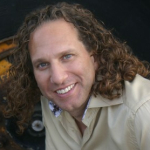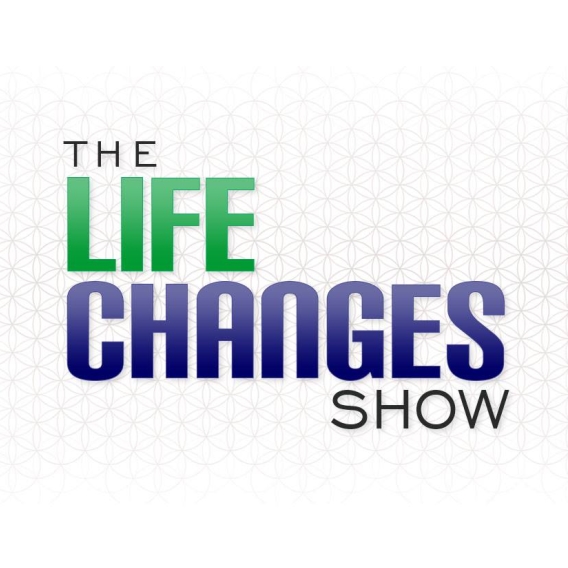Life Changes Show

Come and join the conversation about what's going on and what we can do together about it, with it, and for it. We have the choice, we have the power. We can do magic if we just believe!
A show about the changes going on in us, to us, around us, and because of us. Therefore, it's technically a show about "Everything," only with a how to make it better, see it better, be better.
In the show, there is talk about, and with, people who have either been through major changes, are helping others with major changes, or people who are changing the world for the better in a major way.
The show is a one-hour talk show format with a monologue by the host, a 30 minute interview with a guest of note, capped by a "Producer's Wrap" segment, in which Filippo and Co-Host Mark Laisure, and sometimes surprise guests, bring it all home for the listeners in a sometimes humorous and sometimes touching, but always entertaining conversation.
Guest, Sunny War

SUNNY WAR
“…her right thumb plunks the bass part while her forefinger upstrokes notes and chords, leaving the other three fingers unused. A banjo technique, it’s also used by acoustic blues guitarists. Her fingers are long and strong – Robert Johnson hands – in jarring contrast to the waif they’re attached to. The walking bass line sounds like a hammer striking piano keys in perfect meter, while the fills are dynamic flurries – like cluster bombs. I haven’t heard a young guitarist this dexterous and ass-kicking in eons.” – Michael Simmons, L.A Weekly
Sunny War (born Sydney Lyndella Ward) is more than just an artist; she is a force of nature that is tough to pin down. What exactly is her style? Is she a blues or punk artist? The answer is yes and no. You can try to place Sunny in a few boxes, but doing so would be a major disservice to the young songstress. Yes, she may be a Robert Johnson with a shot of Bad Brains, but even this description falls short. The only way to really know Sunny is to immerse oneself in the music. Easy enough, right? OK, maybe not that easy.
Sunny was born to single mother just over 20 years ago. Her childhood was unconventional. One way to describe it is nomadic. Her mother’s bohemian lifestyle had Sunny moving from place to place, including stays in Colorado and Michigan. Most stays were not for very long, usually about a year or so. “Throughout my whole childhood, I was in a different place every other year, so naturally, I am not used to staying in one place for too long. I think it is time to leave once people get to know your name,” she comically explains.
Early life was somewhat of a struggle because there were many instances Sunny experienced being different from her peers. This was especially evident when she moved from Michigan to Tennessee. “I lived in a predominately white suburb while I was in Rochester, Michigan. When I went to Nashville, I did not ‘talk Nashville.’ I felt the kids at school were really closed-minded, mostly because we were in the Bible Belt. They would harass me all the time. I was also small for my age and wore glasses, “says Sunny. She found music to be the ultimate refuge. “I was really depressed all the time, but I was playing guitar all the time. I would hang out with my cat. I did not have a lot of friends when I was younger,” says Sunny.
By the age of 13, Sunny taught herself to play guitar and began to write her own original songs. She credits her mother’s boyfriends for introducing her to the blues. Once that fire to create sparked, there was no turning back. Eventually, Sunny decided California would be a good place to try to set down some kind of roots and get her music heard. She found herself living and performing on the streets of San Francisco and San Diego.
After a short time, Sunny felt that familiar feeling…the need to change her scenery. She felt a strong connection to the eclectic art center, Venice Beach, CA, where she has become a mainstay performer on the world famous boardwalk on and off for 7 years.
In addition to memorable boardwalk performances, Sunny continued with a side project, Anus Kings, as an outlet for other musical interests. The band created a buzz in the local LA punk scene with frequent performances at the famed Downtown punk favorite, The Smell. “With Anus Kings, I try write punk stuff, but I try to write like a blues musician would,” she says when talking about her punk influence. Local art and music advocates in Venice soon caught wind of the young guitarists’ claw hammer style—a complex banjo style of guitar playing frequently used by Southern acoustic blues guitarists. After years of paying dues, fans and critics are finally beginning to “get it.”
Then there is her voice with all the melancholy found in Billie Holliday and its remarkable ability to cut through the listener’s heart like a hot knife through butter. Many Venice Beach cultural notables, including Gerry Fialka, have publically sung their praise (no pun intended). Soon, influential publications like the LA Weekly took notice. The attention resulted in a feature article by Michael Simmons. In the article, Fialka is quoted saying, “Sunny is going to blow your mind. She is like no one else.”
Sunny’s repertoire includes an expansive collection of songs exploring personal aspects of her life. Her lyrics prove she is not afraid to share her insights and philosophies on life. In her track, “Man of My House,” Sunny speaks on the trials and tribulations of living without a father in the home and inheriting the role of head of the household. Other tracks are just as powerful, but also contain a dose political philosophy as exemplified in the moving blues tracks, “Police State” and “Sheep.” There is also “Downtown–”a track that touches on the damage to one’s life drugs can cause without warning.
Sunny has indeed blown people away as evidenced by signing a sponsorship deal with Gibson Guitars and signed with performance rights organization BMI.









